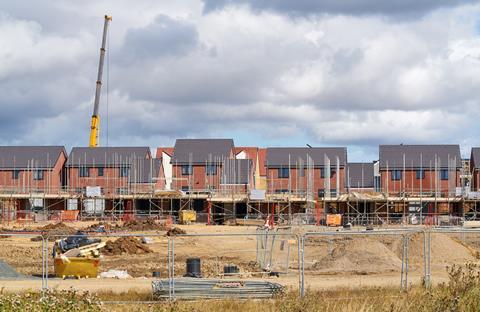The lifting of the Housing Revenue Account cap is only the first step, according to the District Councils’ Network

The scrapping of the Housing Revenue Account cap has boosted district councils’ housebuilding efforts, according to a new report, but local authorities still need more powers and resources if they are to speed up developments.
A poll of senior housing officers working in five councils across England, commissioned by the District Councils’ Network (DCN) in partnership with the Local Government Information Unit, revealed that a third of stock holding districts had advanced plans for building more new homes while the remaining two-thirds said they were “considering increasing building now as a result of the cap being lifted”.
While these findings were regarded as positive, the DCN report warned that councils would need more powers and resources to effectively manage local housing markets.
“As well as certainty of future funding needed to plan effectively districts need support from government agencies to speed up development, and local control over the discount levels and the time period for retention of Right to Buy receipts,” it said.
“The research shows that districts are taking up the challenge and building where they can, using the tools at their disposal. Lifting the cap [last October] is a welcome decision that has already yielded positive results.
“However to maximise their housebuilding potential further changes are needed to enable the level and quality of building we need,” it added.
John Fuller, chairman of the DCN, said: “All councils just want to get on and build homes people need. Stock holding authorities have had a head start in getting back into the housebuilding industry.
Fuller said the freedoms afforded councils through the scrapping of the Housing Revenue Account cap were “a welcome start”, but he urged the government to allow local authorities to go further.
“It must reform Right to Buy, implement a streamlined compulsory purchase order process, introduce step-in rights to intervene on stalled proposals, and release housing infrastructure funding to enable all areas to contribute to getting a roof over everyone’s head,” he said.
Responding to the DCN’s report, a spokesperson for the Ministry for Housing, Communities and Local Government said: “The government is determined to restore the dream of home ownership for a new generation by delivering 300,000 homes a year by the mid-2020s.
“Last year delivered more new homes than in all but one of the last 31 years.
“We’re committing £44bn of funding and guarantees to support more homes, reforming the planning system to free up more land, and removing the cap on how much councils can borrow to build.”











No comments yet